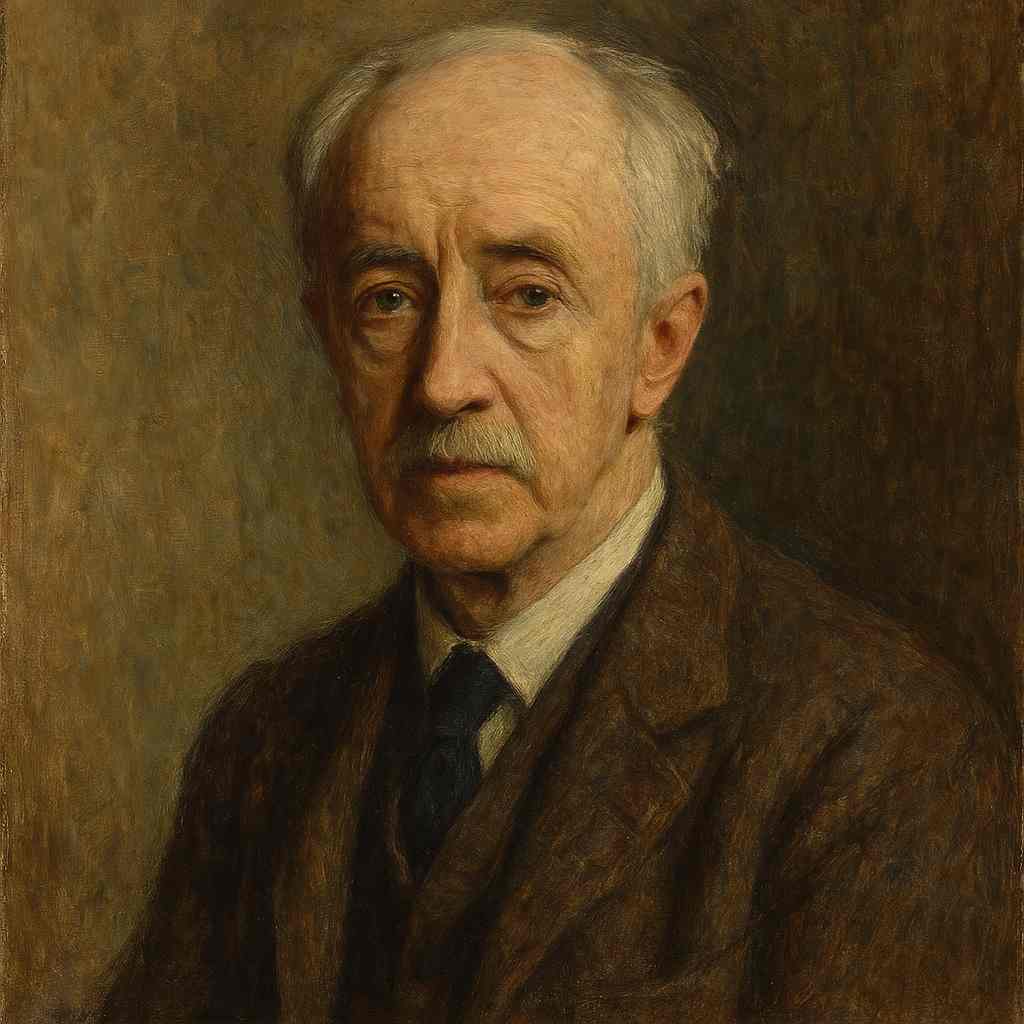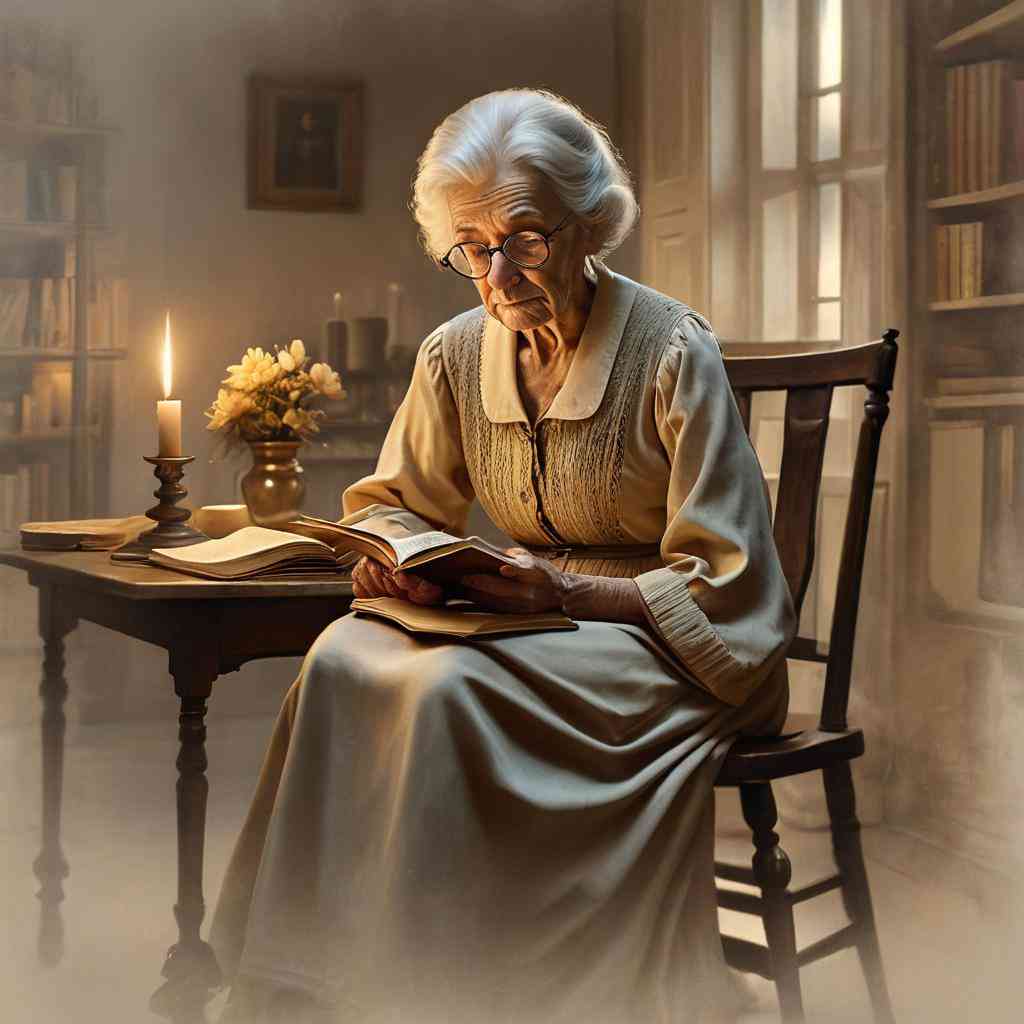1 Poems by Walter de la Mare
1873 - 1956
Walter de la Mare Biography
Walter John de la Mare was born on April 25, 1873, in Charlton, Kent, England, into a family of French Huguenot descent. His childhood, spent in the suburbs of London, would later influence much of his literary work, particularly his poetry for children. De la Mare's early years were marked by a sense of wonder and imagination that would become hallmarks of his writing.
Educated at St. Paul's Cathedral Choir School, de la Mare was exposed to a rich tapestry of musical and literary influences from a young age. However, financial constraints forced him to leave formal education at the age of sixteen. This early departure from academia did not hinder his intellectual pursuits; instead, it perhaps contributed to the unique, somewhat otherworldly quality that would come to define his literary voice.
De la Mare began his professional life as a statistician with the Anglo-American Oil Company, a position he held from 1890 to 1908. During this period, he started to write in his spare time, publishing his first short story, "Kismet," in 1895 under the pseudonym Walter Ramal. This early foray into literature marked the beginning of a prolific career that would span over six decades.
In 1908, through the recommendation of Sir Henry Newbolt, de la Mare received a Civil List pension, which allowed him to leave his job and devote himself entirely to writing. This pivotal moment in his life coincided with the publication of his first poetry collection, "Songs of Childhood" (1902), which had already begun to establish his reputation as a writer of imaginative verse.
De la Mare's literary output was diverse and expansive. He wrote numerous collections of poetry for both adults and children, novels, short stories, and even plays. His work is characterized by a dreamlike quality, often blurring the lines between reality and fantasy. This distinctive style is evident in collections such as "Peacock Pie" (1913) and "The Listeners and Other Poems" (1912), the latter containing his famous poem "The Listeners," which has been widely anthologized and studied.
The supernatural and the uncanny feature prominently in de la Mare's work. His novel "The Return" (1910) explores themes of possession and identity, while "Memoirs of a Midget" (1921) delves into the experiences of a woman of diminutive stature, offering a unique perspective on society and human nature. These works showcase de la Mare's ability to infuse seemingly ordinary situations with an air of mystery and otherworldliness.
De la Mare's contributions to children's literature are particularly noteworthy. His collections of poetry and prose for young readers, such as "Peacock Pie" and "Broomsticks and Other Tales" (1925), demonstrate his understanding of the child's imagination and his ability to craft verse that appeals to both children and adults. His work in this genre has been praised for its musicality, whimsy, and subtle depth.
Throughout his career, de la Mare received numerous accolades for his literary achievements. He was awarded the James Tait Black Memorial Prize for fiction in 1921 for "Memoirs of a Midget," and in 1947, he received the Carnegie Medal for British children's books for his collection "Collected Stories for Children." In 1948, he was appointed to the Order of Merit, one of the highest civilian honors in the United Kingdom.
De la Mare's influence extended beyond his own writing. He served as a mentor to younger poets and was a respected figure in literary circles. His friendship with the poet Edward Thomas is well-documented, and their correspondence offers insights into the creative processes of both writers.
Despite his success and recognition, de la Mare remained a somewhat enigmatic figure. He was known for his reticence in public and his preference for a quiet, contemplative life. This introspective nature is reflected in much of his work, which often explores themes of solitude, memory, and the inner workings of the human psyche.
Walter de la Mare continued to write well into his later years, publishing "The Burning-Glass and Other Poems" in 1945 when he was in his seventies. His final collection, "O Lovely England," was published posthumously in 1953, the year after his death.
De la Mare passed away on June 22, 1956, in Twickenham, Middlesex, leaving behind a rich literary legacy. His work continues to be studied and admired for its unique blend of romanticism, symbolism, and psychological insight. Critics and scholars have noted his ability to create atmospheric, evocative poetry that resonates with readers of all ages.
In the years since his death, de la Mare's reputation has undergone various reassessments. While some critics have questioned the accessibility of his more obscure works, others have championed his contributions to English literature, particularly in the realms of children's poetry and supernatural fiction. His influence can be seen in the work of later writers who explore the boundaries between reality and imagination.
Walter de la Mare's life and work stand as a testament to the power of imagination and the enduring appeal of lyrical, thought-provoking literature. His ability to capture the wonder and mystery of everyday life, coupled with his mastery of language and form, ensures that his place in the pantheon of English literature remains secure, continuing to inspire and intrigue readers and scholars alike.
This text was generated by AI and is for reference only. Learn more
Username Information
No username is open
Everything is free to use, but donations are always appreciated.
Quick Links
© 2024-2025 R.I.Chalmers (V2Melody).

All music on this site by R.I.Chalmers (V2Melody) is licensed under a Creative Commons Attribution-NonCommercial 4.0 International License.
Attribution Requirement:
When using this music, you must give appropriate credit by including the following statement (or equivalent) wherever the music is used or credited:
"Music by R.I.Chalmers (V2Melody) – https://v2melody.com"
Support My Work:
If you enjoy this music and would like to support future creations, your thanks are always welcome but never required.
Thanks!


